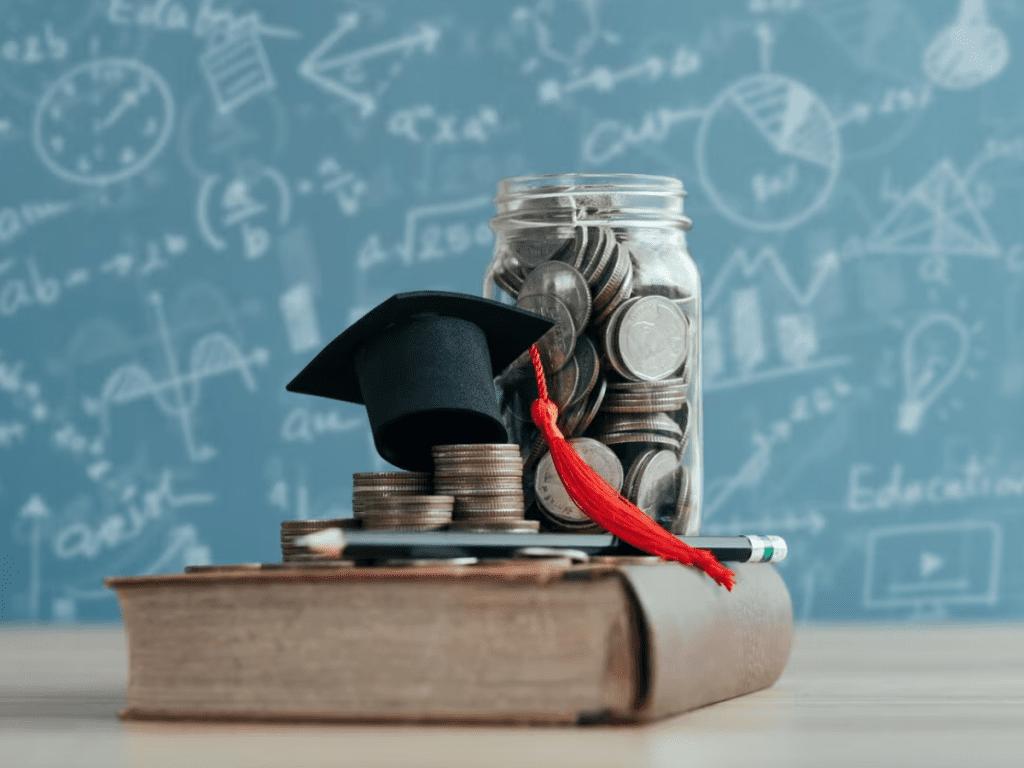Introduction
Student loans are a significant financial burden for millions of people. While education is often seen as a pathway to success, the debt that comes with it can be overwhelming. Falling behind on student loan payments can lead to serious financial consequences, including default, debt collections, wage garnishment, and long-term credit damage. This article will walk you through what happens if you can’t pay back your student loans and provide practical strategies to avoid financial disaster.
Understanding the Basics of Student Loans
Before diving into what happens if you can’t repay your loans, it’s important to understand the types of student loans you may have. In the U.S., student loans generally fall into two categories: federal and private loans.
- Federal Student Loans are funded by the government. These often come with borrower protections like income-driven repayment plans, deferment, and forbearance.
- Private Student Loans are issued by banks, credit unions, or private lenders. These typically have less flexible repayment options and fewer protections.
Most students borrow with the hope of repaying after they graduate and find stable employment. But life doesn’t always go as planned—financial hardships, unemployment, or underemployment can derail even the best intentions.
What Happens When You Miss a Student Loan Payment
Missing a payment is the first sign of financial trouble. Here’s how the process usually unfolds:
- 1-30 Days Late: Your loan is considered past due, or delinquent. You may face a late fee, and your loan servicer may contact you by phone or email.
- After 90 Days (Federal Loans): The loan servicer reports the delinquency to credit bureaus, negatively impacting your credit score.
- After 270 Days (Federal Loans): Your loan enters default. For private loans, default can occur even earlier, depending on the lender’s terms.
Once a loan goes into default, the consequences become more severe.
Consequences of Student Loan Default
Student loan default is not just a financial setback—it can deeply affect many areas of your life. Here’s what can happen:
Damage to Your Credit Score
Once your loan servicer reports your missed payments to credit bureaus, your credit score can drop significantly. A poor credit score makes it harder to qualify for:
- Credit cards
- Car loans
- Mortgages
- Rental applications
- Even some jobs, as employers may check your credit history
Debt Collection
Defaulted loans are often handed over to collection agencies. These agencies can be aggressive in pursuing payments and may call, email, or mail you repeatedly. They may also charge fees that increase the amount you owe.
Wage Garnishment
If you default on federal loans, the government can garnish your wages without taking you to court. This means a portion of your paycheck—up to 15%—can be automatically withheld to repay the debt. Private lenders must go through the legal system, but wage garnishment is still possible.
Tax Refund Seizure
The U.S. Department of the Treasury can seize your federal tax refund to recover unpaid student loan debt. This process is called a “Treasury offset,” and it can happen without warning.
Loss of Federal Benefits
If you receive Social Security benefits, these too can be garnished to repay federal student loans. You can also lose eligibility for further federal student aid if you’re in default.
Legal Action
Private lenders can sue you in civil court to collect on unpaid loans. If they win the case, the court can order wage garnishment, bank levies, or property liens.
Emotional and Mental Stress
Beyond the financial consequences, defaulting on student loans can lead to anxiety, depression, and a constant sense of dread. The stress of being pursued by debt collectors can interfere with your health, relationships, and overall well-being.
How to Avoid Default and Protect Your Credit
If you’re struggling to repay your student loans, you’re not alone—and there are options to help you regain control.
Contact Your Loan Servicer Early
Communication is key. As soon as you realize you might miss a payment, contact your loan servicer. They can help you explore options like:
- Changing your repayment plan
- Applying for deferment or forbearance
- Consolidating your loans
Switch to an Income-Driven Repayment Plan (Federal Loans)
If your federal student loan payments are too high, consider enrolling in an income-driven repayment (IDR) plan. These plans cap your monthly payment at a percentage of your income and extend your repayment term to 20 or 25 years. After that, any remaining balance may be forgiven (though it could be taxable).
Examples of IDR plans:
- Income-Based Repayment (IBR)
- Pay As You Earn (PAYE)
- Revised Pay As You Earn (REPAYE)
- Income-Contingent Repayment (ICR)
Consider Deferment or Forbearance
If you’re facing temporary financial hardship, deferment or forbearance can allow you to pause your payments without going into default. Deferment is often granted for:
- Unemployment
- Economic hardship
- Returning to school
Forbearance is more widely available but can result in interest accrual, increasing the total amount you owe.
Explore Student Loan Forgiveness Options
Some borrowers may qualify for forgiveness programs such as:
- Public Service Loan Forgiveness (PSLF): For those working in government or non-profit organizations.
- Teacher Loan Forgiveness: For educators in low-income schools.
- State-specific forgiveness programs: Vary by location and occupation.
Eligibility criteria are strict, and it’s essential to follow the rules carefully to benefit from these programs.
Loan Consolidation or Refinancing
- Federal Loan Consolidation combines multiple federal loans into one, simplifying your payments and potentially giving access to IDR plans or forgiveness.
- Refinancing (Private Loans) through a private lender may reduce your interest rate or monthly payment. Be careful—refinancing federal loans with a private lender means you lose federal protections.
Use Budgeting Tools and Financial Counseling
Sometimes, your loan payments aren’t the problem—your budget is. Financial counseling can help you evaluate your income and expenses to find room for debt repayment. Budgeting tools and apps can also help you stay on track and avoid late payments.
Avoid Scams
Be wary of companies that promise instant loan forgiveness or ask for large upfront fees. Legitimate federal loan assistance is available for free through your servicer or government websites. If it sounds too good to be true, it probably is.
What to Do If You’re Already in Default
If your loan has already defaulted, don’t panic. There are steps you can take to recover:
Rehabilitation
Loan rehabilitation is a process that removes the default from your credit report after you make nine consecutive, on-time monthly payments based on your income. This is a one-time opportunity for federal loans.
Loan Consolidation
You may be able to consolidate your defaulted loan into a new Direct Consolidation Loan, as long as you agree to repay it under an income-driven plan. This doesn’t remove the default from your credit report but stops collection efforts.
Negotiate a Settlement
If you’re dealing with a private lender or collection agency, you might be able to settle the loan for less than you owe. Be sure to get any settlement agreement in writing and consult a financial advisor or attorney to avoid being scammed or overpaying.
Bankruptcy (Last Resort)
Student loans are notoriously difficult to discharge in bankruptcy, but it’s not impossible. You’ll need to prove “undue hardship” in a special court proceeding. This is a last resort and requires expert legal help.
Building Back Your Credit After Student Loan Trouble
If you’ve missed payments or defaulted in the past, it will take time to rebuild your credit. Here are some steps to take:
- Make all future loan payments on time
- Pay down credit cards and avoid new debt
- Use a secured credit card to establish positive credit history
- Monitor your credit report regularly and dispute inaccuracies
Your credit score won’t improve overnight, but with consistent effort, you can rebuild and recover.
Prevention is the Best Strategy
The best way to avoid the financial and emotional toll of student loan trouble is to be proactive. Here are a few preventive steps you can take, even before repayment begins:
- Borrow only what you need
- Choose federal loans over private loans when possible
- Understand your repayment options before graduation
- Start repaying interest while still in school if you can
- Keep track of your loan balances and servicer contact information
Conclusion
Not being able to pay back your student loans is a frightening and stressful experience, but you are not powerless. The worst thing you can do is ignore the problem. Whether you’re just beginning repayment or already in default, options exist to help you recover.
Start by understanding your loans, communicating with your servicer, and exploring every available repayment option. Take action as early as possible to avoid default, collections, wage garnishment, and credit damage. With the right plan, you can take control of your student loans and protect your financial future.

